Yemen
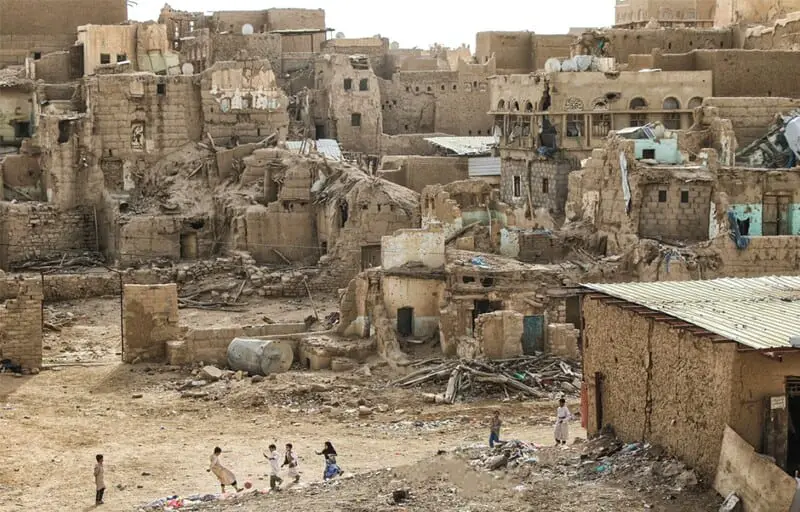
Yemen confronts a range of challenges that hinder IQ development.
The country’s extreme poverty, positioning it among the world’s most impoverished nations, bears a detrimental influence on IQ growth.
Malnutrition, a prevalent issue in Yemen, further contributes to compromised cognitive development.
The prolonged state of civil war has inflicted severe damage upon Yemen’s infrastructure and economy, fostering stress and anxiety that impede IQ progress.
Additionally, the prevalent lead poisoning problem in Yemen adversely affects cognitive functions.
While genetics potentially impact IQ, the extent of this influence remains intricate and debatable, lacking a definitive consensus.
Equatorial Guinea
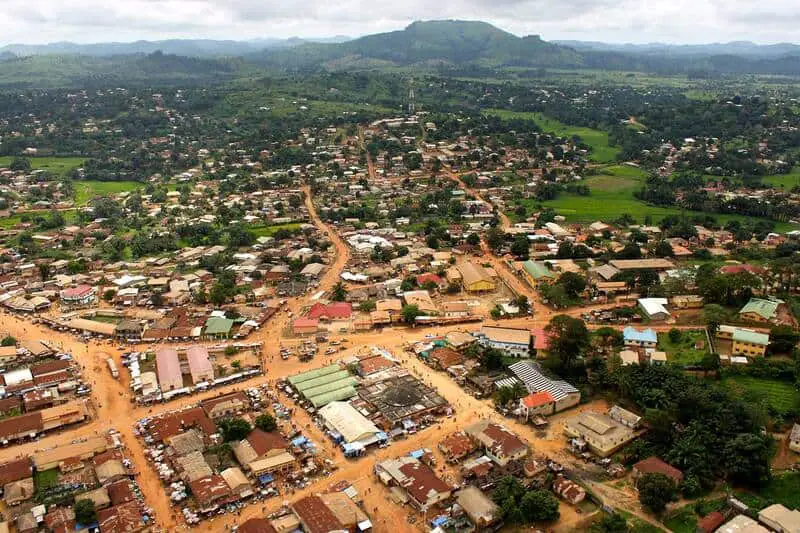
A 2018 study conducted by Lynn and Vanhanen revealed that Equatorial Guinea holds the lowest average IQ in the world, with a score of 59, closely followed by Guinea at 60.
This subpar IQ rating in Equatorial Guinea, as per various sources, stems from multiple factors such as restricted access to education, widespread poverty, and political instability.
The nation’s education system grapples with challenges arising from limited funding, inadequate infrastructure, and a dearth of skilled educators, leading to compromised quality.
Moreover, the prevalence of poverty exacerbates cognitive development hurdles, as impoverished children lack access to crucial resources like nutrition and healthcare that significantly influence brain growth.
The nation’s recent history of Political instability further compounds the issues, detrimentally affecting overall development and the educational landscape.
Somalia
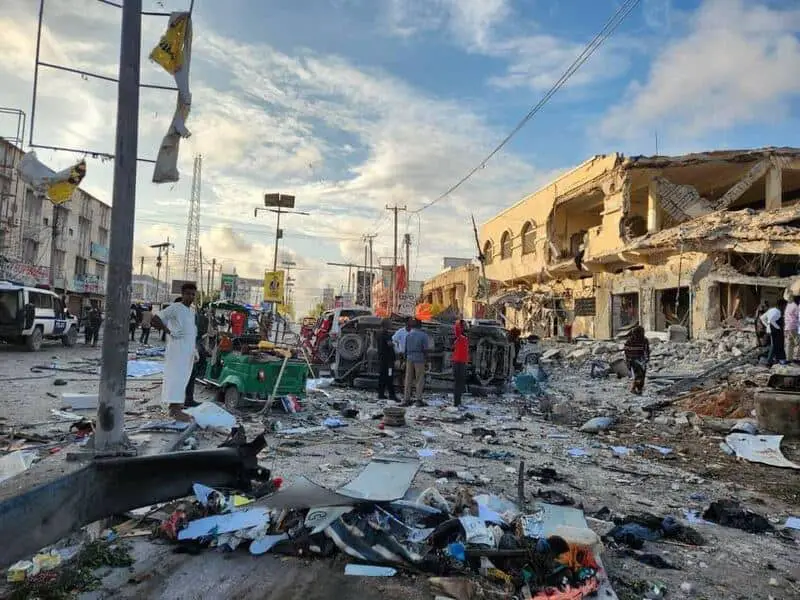
Somalia is a country located in north eastern Africa and is often known as a ‘failed state’ because of extreme political fragility and being a new hotbed for Islamic terrorism.
Somalia’s prolonged conflict, violence, and instability engender heightened stress levels, particularly among children, culminating in potential repercussions for brain development and cognitive function.
Somalia has high rates of malnutrition, stunting, and poverty, especially among children. This can impact cognitive development and IQ scores.
The correlation between malnourishment and poorer IQ test performance is evident, particularly with approximately 30-50% of children under 5 suffering from stunting due to malnutrition.
The country’s education landscape is marked by one of the world’s lowest literacy and school enrollment rates.
This deficiency, with only around 30% of children attending primary school, leads to compromised cognitive growth and IQ outcomes.
Limited access to basic healthcare and early interventions further hinders optimal cognitive development, with only roughly 50% of children receiving fundamental vaccinations. Environmental hazards also pose threats, as Somalia faces notable risks such as toxin exposure and infectious diseases, capable of impacting cognitive development.
Niger
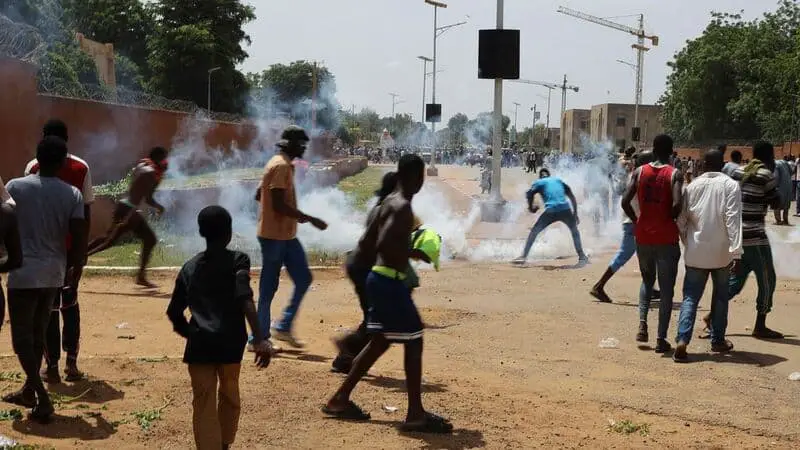
Niger is one of the world’s poorest and least developed countries, grapples with a complex set of challenges.
This dire circumstance reverberates through access to basic necessities like food, water, healthcare, and education, often yielding malnutrition, illness, and diminished well-being.
High unemployment, particularly among young graduates, compounds the predicament, fostering not only poverty but also social unrest, political instability, and regional disparities.
Niger’s inadequate infrastructure, encompassing limited access to electricity, water, and transportation, further hampers economic progress, restricts crucial services, and diminishes overall living standards.
Restricted access to technology perpetuates complexity, limiting economic advancement, educational opportunities, and access to vital information.
The recent military coup in Niger amplifies these concerns.
The coup’s aftermath holds potential for domestic unrest, regional instability, increased militant activities, democratic regression, and a power vacuum, fostering uncertainty and eroding trust in new leadership.
Post-coup, societal polarization and clashes between coup proponents and opponents could ignite protests, demonstrations, and potential violence, exacerbating existing social and ethnic tensions.
These multifaceted factors collectively impact the human experience in Niger, constraining basic access, education, healthcare, and economic growth opportunities.
Guinea
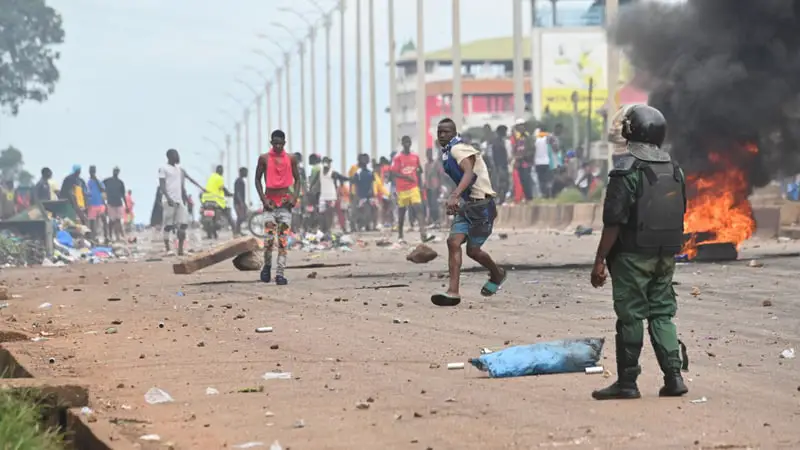
Guinea is one of the poorest countries in the world, with a per capita GDP of only $1,210 (PPP) and the average person living on less than $2 per day. The country has a long history of political instability, economic hardship, corruption, and conflict which have disrupted infrastructure and discouraged investment. Despite having natural resources, wealth has mainly enriched a small elite while most remain poor.
Being landlocked with a hot climate also makes it difficult to farm and raise livestock, the primary income sources for many. These factors have significantly impacted living standards – Guinea has high illiteracy, low life expectancy, and malnutrition is widespread with limited healthcare access. Children are often malnourished and lack quality education, impairing cognitive development and lowering IQ scores on average.
Burkina Faso
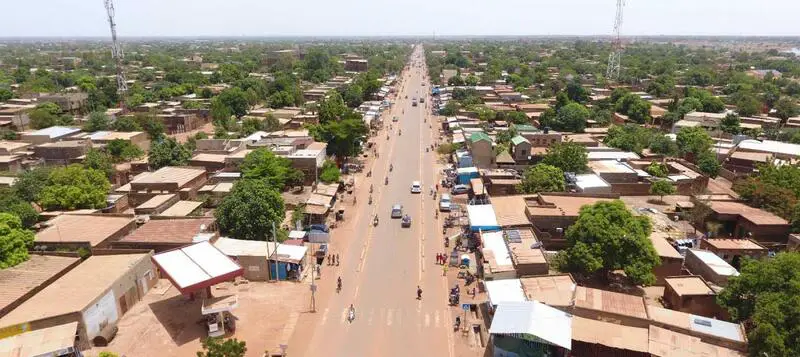
Burkina Faso is a low-income, Sahelian country with limited natural resources. Its economy relies heavily on agriculture, which employs 80% of the population but is vulnerable to climate change and drought. Over 40% live below the poverty line, impacting access to basic needs.
Burkina Faso ranks low in HDI, reflecting challenges including a lack of natural resources constraining growth; high unemployment especially among youth; significant corruption misallocating funds; inadequate infrastructure restricting services and growth; and limited technology access. These issues are exacerbated by climate vulnerabilities in the key agricultural sector, which can lead to food insecurity, poverty, and malnutrition for many.
Corruption, unemployment, and poverty also risk social and political instability. Overall, Burkina Faso’s development is hampered by a combination of economic vulnerabilities and lack of resources, infrastructure, and technology that restrict living standards for much of the population.
Mali
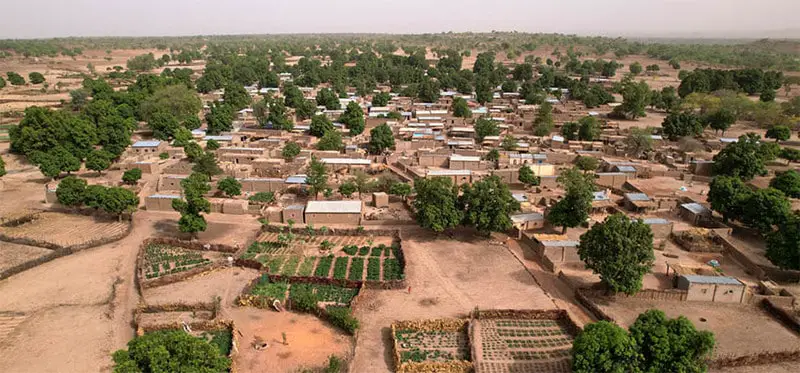
Mali faces significant challenges to development and quality of life due to multiple interrelated factors.
With few natural resources and an undiversified economy reliant on gold and vulnerable agriculture, opportunities for growth are limited.
High population growth of over 3% annually strains scarce resources.
Weak governance, including ineffective institutions, corruption, and lack of basic services, undermines the economy, investment and living standards. Limited infrastructure increases business costs and hampers connectivity.
Over 40% of Malians live in poverty without adequate education, depriving many of skills and opportunities.
Climate threats like desertification and water scarcity reduce agricultural productivity and endanger food security. As a landlocked, hot country, farming and livestock rearing that many depend on is difficult.
The combined effects of these economic, social, environmental and geographic vulnerabilities create a cycle of underdevelopment that will be challenging to overcome without concerted efforts to strengthen institutions, promote inclusive growth, and boost resilience to climate risks.
Gambia
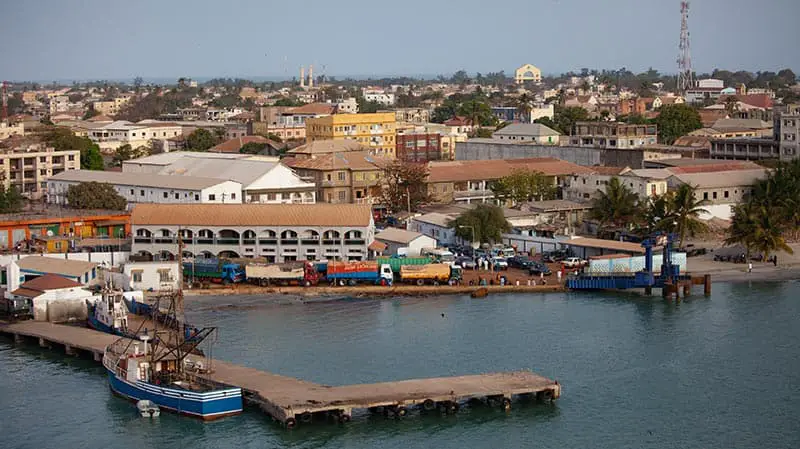
Gambia faces significant development challenges due to multiple interconnected factors. With an estimated 1.1 million Gambians living in poverty, high poverty rates are exacerbated by economic difficulties like weaker growth and higher food prices. Limited natural resources constrain diversification.
Inadequate infrastructure, including limited electricity, water, and transportation, hampers growth and access to services. Past political instability and recent coup attempts have disrupted progress, as has the spread of HIV/AIDS. Climate change effects like worsening droughts and floods also threaten the economy.
As a small country dependent on agriculture, Gambia is vulnerable to these compounded stresses on its population’s health, livelihoods, and development. While democratic transitions are positive, overcoming such entrenched poverty will require concerted efforts across social, economic, and environmental domains to strengthen resilience against future shocks.
Sierra Leone
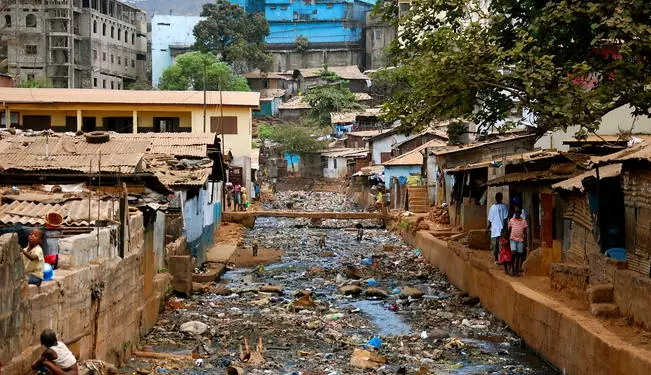
Sierra Leone is one of the poorest and underdeveloped countries in the world, and several factors contribute to this situation. With approximately 70% of the population living below the poverty line, high poverty rates are exacerbated by economic difficulties like weaker growth and food inflation. Limited natural resources constrain diversification.
Inadequate infrastructure, including limited electricity, water and transportation, hampers growth and access to basic services. Past political instability including civil war has disrupted progress, as has a history of government corruption discouraging investment.
As a country with few resources, Sierra Leone is vulnerable to these compounded stresses on its population’s livelihoods and development. While democratic progress is positive, overcoming such entrenched poverty and its impacts on health, education and standards of living will require concerted, multifaceted efforts to strengthen resilience against future shocks through inclusive growth and strengthened institutions.
Liberia
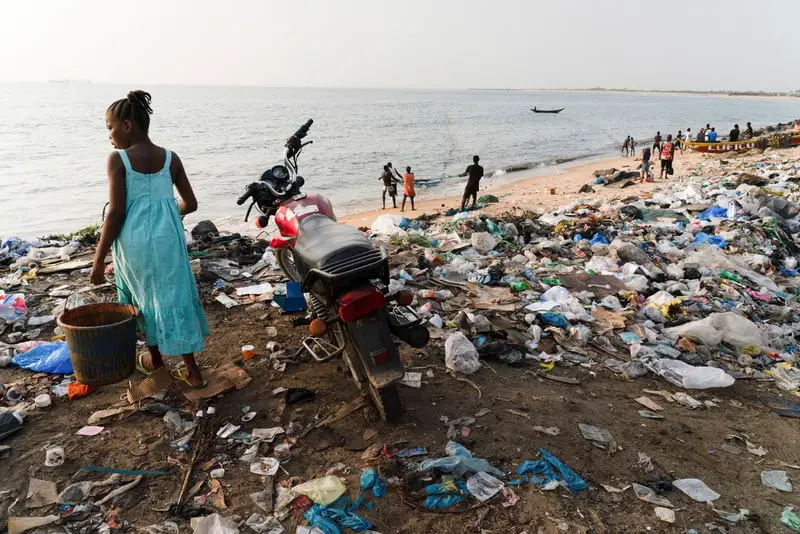
Liberia’s struggle with poverty and underdevelopment has roots in various challenges, notably the devastating civil wars from 1989 to 2003 that shattered infrastructure and disrupted education. Political instability and reliance on limited commodities like rubber and iron ore compound economic vulnerabilities. Insufficient infrastructure, including roads and electricity, creates barriers to development.
Education is a core concern due to resource scarcity, leading to low literacy rates that hinder employment opportunities. Health issues like malaria and Ebola have reduced life expectancy and workforce productivity, further complicating development.
Remarkably, these factors extend to Liberia’s cognitive landscape. Malnutrition, limited quality education access, and chronic poverty-induced stress collectively hinder cognitive development, possibly contributing to lower IQ scores among Liberians.
Nepal

Nepal’s prevalent poverty and underdevelopment are influenced by pivotal factors with potential implications for cognitive development and the average IQ of its people.
The geographical challenge of landlocked mountainous terrain inhibits infrastructure and transport, hampering economic advancement. Political instability from government changes and a civil war casts shadows on development.
Industrialization’s absence limits Nepal’s economy largely dependent on agriculture and tourism, constraining growth.
Remote mountain regions lack accessible education, hindering cognitive development, particularly in early childhood, with a 65% adult literacy rate.
Healthcare shortages are pressing, causing inadequate medical access, immunizations, nutrition, and sanitation. Disease and malnutrition hinder cognitive growth. Nepal’s persistent poverty affects one in four citizens, leading to malnutrition, stress, limited education and healthcare access, and inadequate cognitive stimulation – all detrimental to IQ.
While genetics have a role, research highlights the weight of environmental factors like malnutrition, education, and poverty in shaping cognitive development and IQ.

